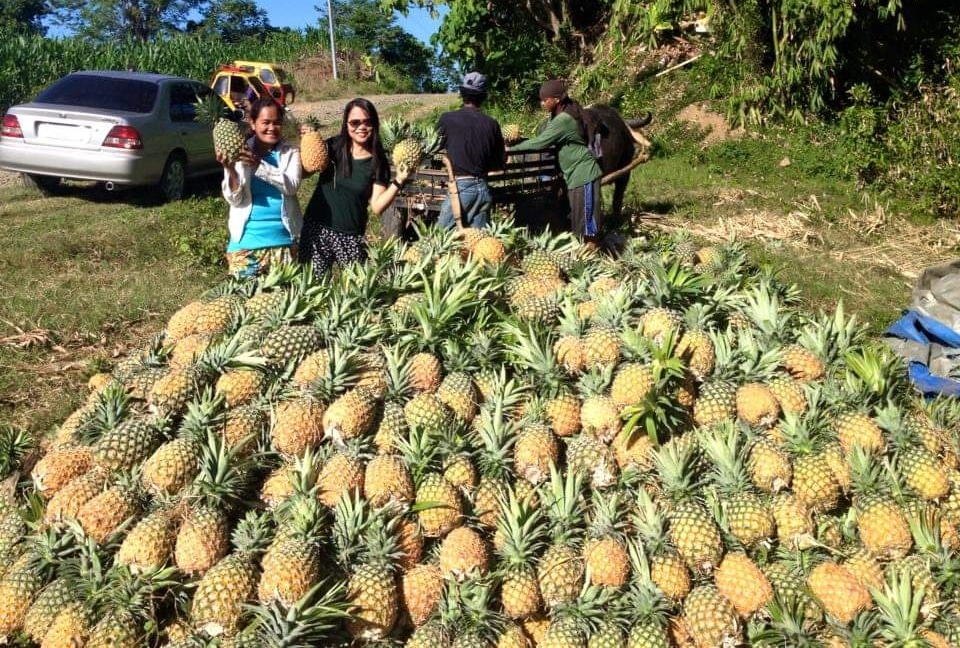
Women’s roles in Philippine agriculture have always been vital to the sector’s development. Despite their contributions, women continue to suffer from inequities and are still underrepresented in several branches of this male-dominated field.
An article published in Food and Fertilizer Technology Center for the Asian and Pacific Region’s website wrote that even though laws and private and public initiatives are put in place to fight gender imbalance, some female farmers and fisherfolk in the Philippines remain marginalized in comparison to their male counterparts.
While the word “farming” still conjures up images of men working in a sunny field, there are empowered women who are going beyond such stereotypes and carving their own path in agriculture. Here are four of them, whose inspiring stories have previously appeared on Agriculture Online.
Gigi Morris of MOCA Family Farm RLearning Center
Morris, Ka Gigi to the local community, shared that she felt an implicit bias or stereotype when she first entered the agribusiness.
In her own words, she says, “I think many in the government service back then thought that farming is not a career for someone who [isn’t] ‘economically challenged.’ Navigating for help and assistance in government programs back then was not easy for new farmers.”
This did not hold her back and instead served as a motivation for her to arrange events for small farmers.
Through MOCA Family Farm RLearning Center, a private extension service provider for Agricultural Training Institute (ATI) Calabarzon, she joined forces with the Department of Agriculture (DA) in working with new and existing farmers in the delivery of agricultural extension programs and in implementing capacity-building activities for women-led family farms.
“Organizing farm events and agri-conferences created an opportunity for me and other women-led family farms. It was an opportunity to remove the implicit bias or implicit stereotype I faced when I started. It was a chance to get the conversation started,” she said.
Morris, who is currently taking up studies in women leadership, believes that it is important to participate in tackling gender issues, which can also help empower and create more women leaders in agriculture.
She noted, “Mentoring is important, women leaders must not just inspire young women to become leaders but must mentor them to become young leaders. We need to make it a goal that they transition to mentors to other young women as well. Because yes, there is power in women coming together!”
Lhea Mallillin of Sangui Gold Farm
There are no gender requirements in farming. This is what Mallillin, a teacher and weekend farmer, believes, adding that women can do what men can accomplish, too.
Fortunately, this farmer has not experienced any prejudice since she started farming in 2014. Instead, she serves as an inspiration to other women who aspire to enter the industry.
Although she struggles to perform some farm tasks like operating heavy machinery, Mallillin is confident that she can go above and beyond what is expected of her when it comes to farm management.
“Women also play a vital role in agriculture, [which include] tilling the soil that God bestowed on Earth to its stewards, feeding the world, and ending hunger and food insecurity. We have to prove to [others] that gender is not an issue in farming.”
Viola Fern Sebastian and Frianina Resplandor of Myriad Farms
Myriad Farms’ owners are yet another successful women farmers in transcending gender norms in agriculture.
Sebastian and Resplandor, an LGBTQ+ couple, stated that they have not faced any discrimination in their years of farming.
“We’re happy that people are open-minded nowadays. That is why we are more eager to be able to reach out to as many women farmers [as possible] in our community.”
The duo adds, “The agriculture sector is underperforming in our country, and one of the reasons is that women do not have equal access to the resources and opportunities they need to be more productive. We can show them that, as women, we are critical agents of change in our fight against rural poverty, hunger, and malnutrition.”
They believe that the barriers that a lot of women face in the rural labor market must be addressed by giving women equitable access to education and productive resources, plus strengthening their knowledge, skills, and abilities.
“More effort is needed to increase women’s representation in local institutions and governance mechanisms and include them in decision-making within their households and communities.”
This Women’s Month, we honor all the women in agriculture, including the aforementioned farmers, who have been an inspiration and are working toward a better and more sustainable agriculture. ### (Vina Medenilla)















